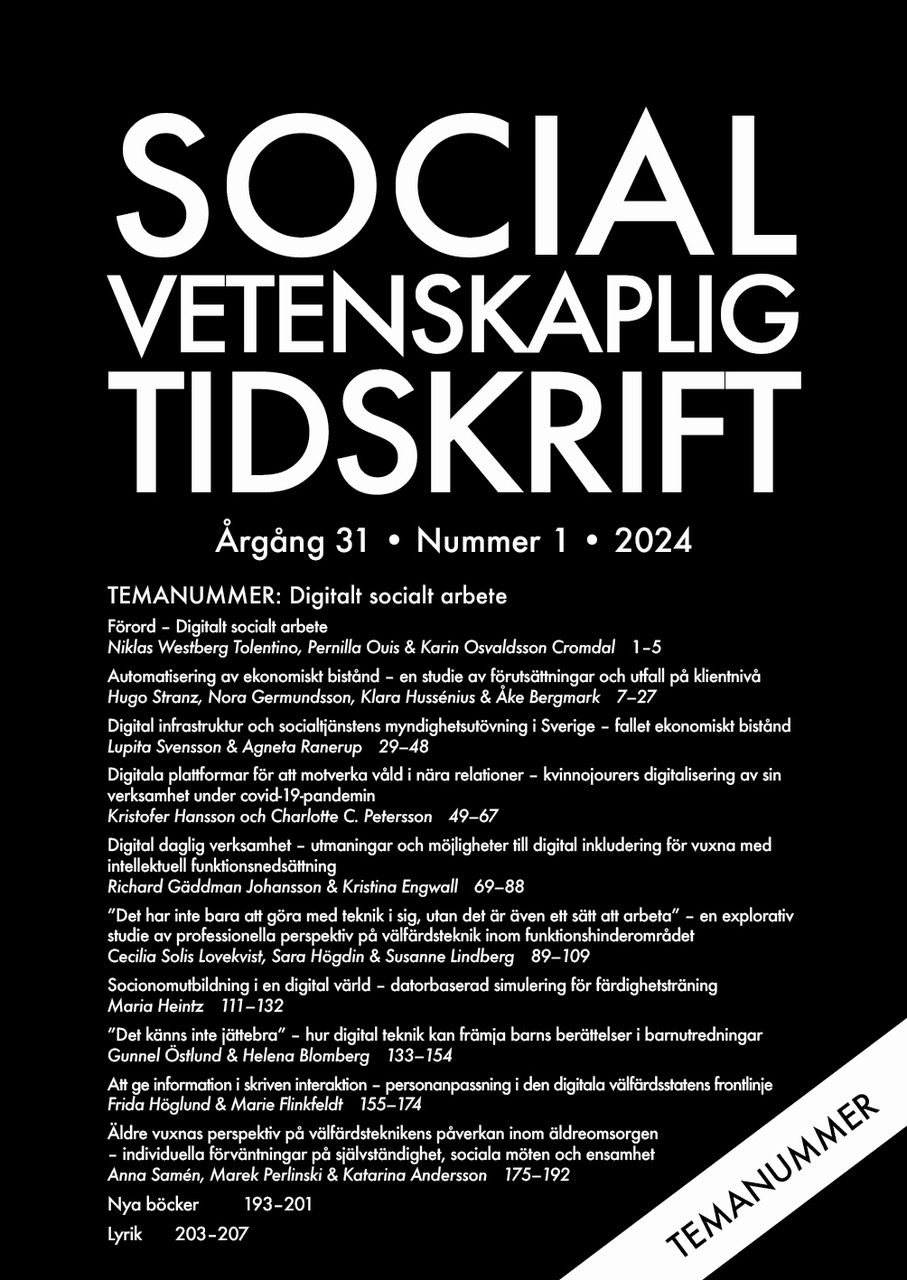Automatisering av ekonomiskt bistånd
– en studie av förutsättningar och utfall på klientnivå
DOI:
https://doi.org/10.3384/SVT.2024.31.1.4869Nyckelord:
Social Assistance, Assessments, Robot Process AutomationAbstract
Standardising the Last Welfare Safety Net? RPA-support in Practical Work with Social Assistance in Sweden
In recent years, the use of digital support systems in the administration of Swedish social assistance (SA) has become increasingly widespread. Current surveys show that around 10 percent of Swedish municipalities make use of so-called Robot Process Automation (RPA) in their everyday practice. As key arguments for the use of RPA-support, aspects such as unburdening employees of pure administrative tasks, as well as increased transparency and enhanced legal certainty for applicants, are often highlighted.
The present paper presents results from a larger research project addressing the practical use of RPA-support in Swedish Personal Social Services. The analyses are based on cross-sectional quantitative data from 800 cases collected in four medium-sized Swedish municipalities. Half of the cases reflect assessment outcomes before RPA-support was implemented; the other half show outcomes after implementation. The paper aims, first, to describe the character and contents of the different RPA-tools utilised in municipalities. Second, the paper aims to describe and analyse the outcomes of SA decisions before and after the implementation of RPA-support, respectively.
Our main findings are as follows: (a) while RPA can partially alleviate the administrative burden on social workers, human involvement remains essential for individual assessments; (b) even though the use of RPA-support does not establish any significant relation to the outcomes of SA eligibility assessments, the assessments are far less generous after the implementation of RPA than before; and (c) the changes in generosity are particularly notable with regard to applications outside of the National Benefit Standard, which is a strong predictor for the rejection of applications.
Downloads
Publicerad
Referera så här
Nummer
Sektion
Licens
Copyright (c) 2024 Hugo Stranz, Nora Germundsson, Klara Hussénius, Åke Bergmark

Det här verket är licensierat under en Creative Commons Erkännande 4.0 Internationell-licens.
Allt material i Socialvetenskaplig tidskrift publiceras sedan 2022 (Vol 28 Nr 2) med omedelbar öppen tillgång (open access), under Creative Commons-licensen CC BY 4.0. Upphovsrätten till innehållet tillhör respektive författare.
Allt innehåll i tidskriften är fritt tillgängligt utan kostnad och får fritt läsas, laddas ned, kopieras, delas, skrivas ut och länkas. När innehållet används måste författare, källa och licens anges. Författaren kan fritt göra sin publicerade text tillgänglig på institutionella och internetbaserade arkiv, exempelvis sitt lärosätes digitala arkiv eller andra tjänster för detta.
Inga publiceringsavgifter tas ut vid publicering i Socialvetenskaplig tidskrift.


